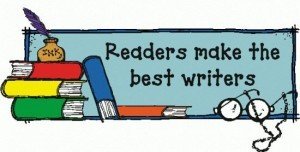 Phrasal verbs are made when we use a main verb with another word (or words) to change the meaning of the main verb. As they are considered informal, phrasal verbs should not be used in the writing test (with the exception of informal Task 1 letters for the General Training), but understanding phrasal verbs will help in both your reading and listening, and will also help you show a range of vocabulary in your speaking test.
Phrasal verbs are made when we use a main verb with another word (or words) to change the meaning of the main verb. As they are considered informal, phrasal verbs should not be used in the writing test (with the exception of informal Task 1 letters for the General Training), but understanding phrasal verbs will help in both your reading and listening, and will also help you show a range of vocabulary in your speaking test.
There are a few different phrasal verbs with ‘read and write’.
We’ll cover some of the most useful ones in this lesson.
Note: Remember, as for all phrasal verbs, phrasal verbs with ‘read and write’ are best used in spoken English and informal written English. It is often best to avoid using them in formal writing and even in some formal spoken situations (for example, you should avoid using them in Part 3 of the IELTS speaking test).
Phrasal verbs with ‘read and write’ examples
- read about
- read up on
- read over
- read (something) into (something)
- write down
- write up
- write in (to something)
- write off
‘read’ / ‘write’ (about) examples
- read about (something)
- write about (something)
This is the basic meaning. We read ‘about’ or write ‘about’ something to learn or share information.
1. Did you read about their wedding in the newspaper? They are two of my favourite celebrities.” (find out information about a topic through reading)
2. I’m writing about developments in the tourism industry for my college assignment.” (make a written record of information about a topic)
Phrasal verbs with ‘read’ (up on) examples
- read up on (something)
1. I don’t really know much about the company I have an interview with next week. I must read up on them before my interview. (research, find out more information with purpose)
Phrasal verbs with ‘read’ (into) examples
- read (something) into (something)
1. I’m sure you’re reading too much into the situation. I don’t think she’s angry with you, I think she’s just stressed because of her job. (make an assumption about something through feelings / intuition)
Phrasal verbs with ‘write’ (down ) examples
- write down (something) / write (something) down
1. I can’t remember information very well unless I write it down. (make notes, make a written record)
Phrasal verbs with ‘write’ (up) examples
- write up (something) / write (something) up
1. I’ve researched all the information I need, but I haven’t started writing up my report yet. (put something in to writing; e.g. a report, an assignment)
Phrasal verbs with ‘write’ (in) examples
- write in (to something)
1. I write in to my favourite magazine quite often. I love it when they publish my letters. (write a letter to a newspaper, television company, or other organization, to express an opinion or ask something)
Phrasal verbs with ‘write’ (off) examples
- write off (something – an object)
1. The insurance company has decided to write off my car as it was so badly damaged in the crash. (action taken by an insurance company when a vehicle or other object that is too badly damaged to be repaired.)
- write off (something – a debt of asset)
2. Organisations are entitled to write off certain expenses that are required to run the business, or have been incurred in the operation of the business. (cancellation from an account of a bad debt or worthless asset)
- write off (someone / something)
3. Don’t write off Tom quite yet! He’s had a lot of bad luck lately and I’m sure he’ll be back to his normal self soon. (to give up on someone or something as a waste of time, hopeless case)
